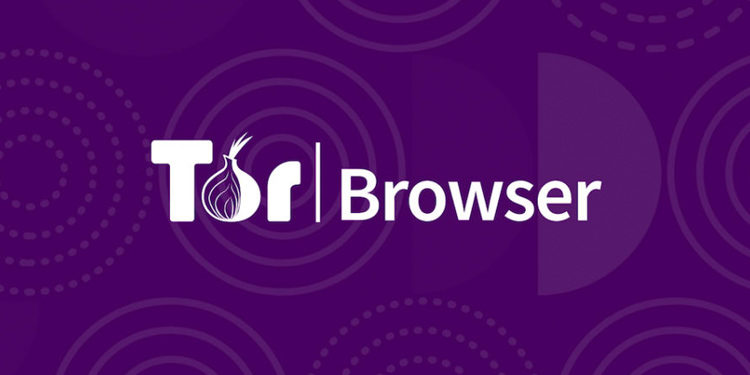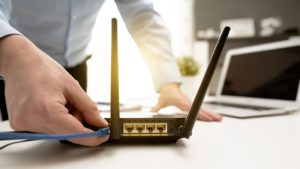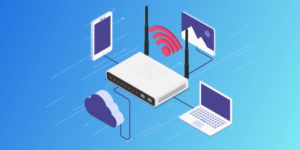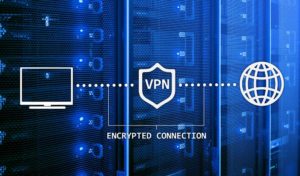Your IP address is like a digital fingerprint. It can be used to track your online activity, discover your physical location, and even reveal personal information like your name and address. That’s why it’s important to take steps to protect your IP address if you’re living in Australia.
One simple solution is to use a VPN, which encrypts your traffic and routes it through a server in another location. This makes it impossible for anyone to see what you’re doing or where you’re located.
Another option is to use a proxy server, which will similarly conceal your identity and location. In this article, we’ll discuss how to protect your IP address in Australia!. For further details on IP addresses have a look at our full guide on how to find your IP address.
How to protect your IP address in Australia(Some ways are free)
Below are some ways through which you can protect your IP address:
Tor Browser

Tor is a decentralized worldwide anonymity network run by thousands of enthusiasts. Tor, which stands for The Onion Router, is a decentralized worldwide anonymity network that connects users through the Internet.
When you connect to Tor, your internet activity is scrambled and sent down a random chain of these volunteer “nodes,” which are essentially proxy servers. The IP address of the last server in the chain, known as the exit node, is visible only to websites.
The sequence of nodes on each website changes with each visit. This makes it nearly impossible to identify the source IP address.
The most straightforward way to utilize Tor is to download and install the Tor Browser. It’s like any other browser, but it’s free and works in the same way.
But there are drawbacks. Tor is a convoluted, sluggish network that isn’t good for torrenting or streaming–stick to web surfing. Tor is also sometimes linked to criminality because it may be used to access the darknet and unlawful websites. Some services block connections from known Tor nodes, and your ISP may take a dim view of it.
Unplug your router

It’s possible that you won’t succeed with this every time, but if you switch off your internet modem and restart it, you should be able to obtain a new IP address. Your IP address will be changed if you reconnect.
If you disconnect your modem for an extended period, the more likely it is to work. If you must, try leaving it unplugged all night.
Connect your device to a different network

Because your IP address is dependent on the network you’re connected to, it switches every time you change networks. You may also move your IP address to a different network if you believe it has been hacked, blocked, or tracked.
You may connect to a public or private Wi-Fi network, or utilize your smartphone’s mobile data connection. When using public internet hotspots and open networks, be careful since they may be vulnerable to hacking.
Use a VPN

A Virtual Private Network (VPN) is a type of software that encrypts all of the data transmitted across the internet and transmits it via a server in another country. A Virtual Private Network (VPN) server acts as a go-between for websites and online applications, linking your device to the internet. Users only see the VPN server’s IP address instead of their own.
The majority of VPNs are subscription-based and cost a few dollars each month to use hundreds or even thousands of servers in locations all over the world. There are simple apps accessible to anyone, no matter where they’re situated on the globe.
You only have to download the applications for your devices now. You may then utilize your new IP address to access unblocked material after that.
The majority of company VPNs, like ExpressVPN, utilize shared IP addresses, which implies that everyone connected to the same server is disguised behind the same IP address – that of the VPN server.
By concealing your true IP address, a VPN that uses shared IPs makes you virtually unnoticeable from the other users. The Tor browser is also an excellent tool for perusing websites and other resources that are deemed too sensitive or risky to access regularly.
Ask your internet service provider to change your IP address
The ISP is the entity that assigns IP addresses. So if you require to alter your Internet Protocol address for any reason, call them up. You’ll need your account information and your present IP address on hand.
It shouldn’t be very challenging to get a fresh IP address, but don’t hope it to stay exact. Your IP address will most likely change once in a while since IP addresses are constantly recycled to keep the little number of available IP addresses. Dynamic IP addresses are known as such because they change often.
You can obtain a static IP address, but there may exist an application procedure and/or an extra charge.
Nat Firewall to hide your IP address
If you connect to the internet through a wireless router, there’s a good chance you’re behind a NAT firewall. In the most basic terms, a NAT firewall allows several devices on the same network to share a common public IP address while maintaining unique private IP addresses.
The router’s public IP address is used to translate the private IP addresses of individual devices to their online destinations, as explained in Network Address Translation (NAT). It restricts unsolicited inbound communications with potentially harmful computers on the internet by saving address space (the number of available IP addresses) and preventing unwanted outbound communication.
The public IP address is not hidden by a NAT firewall, but the private IP address is. All devices connected to a NAT-enabled router will have a shared public IP address.
Any online communication that isn’t in response to a request you made from a private IP address will be filtered by the NAT firewall. Because they don’t have a private IP address to which they can be forwarded, all other requests and data packets are discarded.
Can someone track your IP address in Australia?
It is impossible to hide your actual IP address from your service provider. Although VPNs and proxies do not directly replace your current IP address, they may help to mask your identity so that you appear to be surfing the internet from a different location.
They simply replace your IP address with one of theirs, preventing other computers and servers on the internet from seeing yours. But, in reality, your actual IP address is still communicating through the proxy or VPN server as an intermediary.
With a VPN, you may conceal the content and purpose of your internet activity even if you can’t hide your real IP address from your ISP. Your ISP will not be able to see what information you communicate, as it is encrypted.
The ISP only sees that you are connected to a VPN server—not the websites or apps you use. The VPN conceals your real IP address from websites and applications, but they still have access to the contents and destination of your internet activity.
Only you and your VPN provider have access to all three—your real IP address, the websites you visit, and the data that passes between them. As a result, I only suggest VPNs that don’t keep any records of your online activity.
Why is it important to hide my IP address in Australia?
Your IP address is ever-present whenever you go to a website or use an online service. When you return to its site, the service can monitor you. As a result, it may engage in pattern analysis to figure out what you like on its site.
The site can examine your IP address to determine which country you’re in, and it may apply geo-restrictions as a result. If you have an American IP address, Netflix may be inaccessible while you’re on vacation or compelled to view material in other countries in the case of Netflix.
Frequently asked questions
Is hiding your IP address legal?
How do I hide my IP address on iPhone?
How do I hide my IP address on Android?
How do I verify if my IP address is hidden?
Can IP addresses reveal your identity?
Do I need to hide my IP address while torrenting?
Conclusion
In this detailed guide on how to protect your IP address in Australia, we have discussed some common ways through which you can protect your identity online. Some of the methods are free to use while others are paid. These common practices will keep your highly confidential data safe from being leaked. We suggest our readers always use a VPN from a trusted provider this is the best and the easiest solution to keep your device protected.